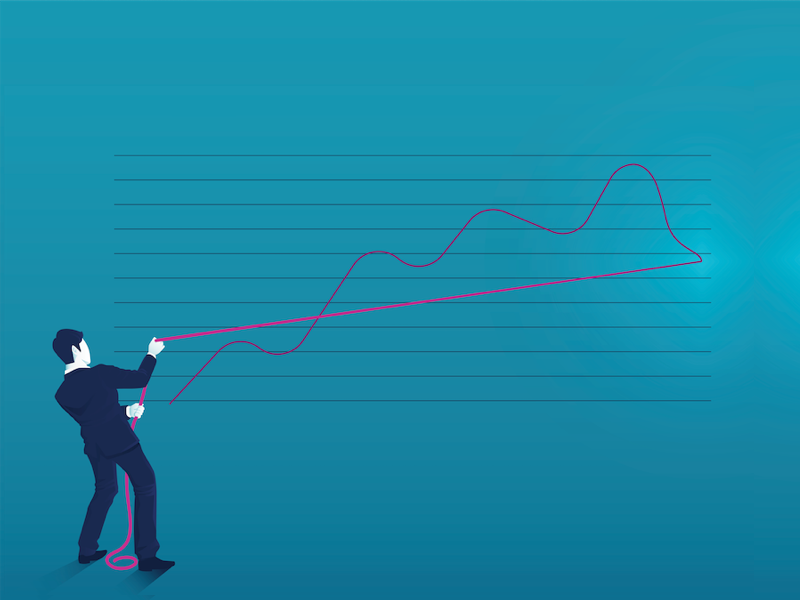
Inflation cooled for the third straight month in April even after some of President Donald Trump’s tariffs took effect, though economists and many business owners expect inflation will climb by this summer.
Consumer prices rose 2.3% in April from a year ago, the U.S. Labor Department said Tuesday, down from 2.4% in March and the smallest increase in more than four years. On a monthly basis, prices rose modestly, increasing 0.2% from March to April after falling 0.1% the previous month — the first drop in five years.
Grocery prices dipped 0.4% from March to April, in what will come as a relief to many people stretching family budgets for the basics. It was the biggest decline in food costs at home since September 2020, the government said. Egg prices fell sharply, declining 12.7%, the most in 41 years. Yet they are still 49% higher than a year ago.
Overall, the report suggests tariffs haven’t yet impacted prices for many items. Economists say the impact will more likely be seen by June or July. The 10% tariff on all goods that took effect April 5 could take two to three months to feed into the inflation data. And many companies built stockpiles of products earlier this year, enabling them to delay price hikes in hopes the trade war will cool.
The cost of clothing, which is mostly imported, declined 0.2% from March to April, the report said. New car prices were unchanged. And grocery prices fell despite fears tariffs on some goods from Mexico would boost food costs.
“It’s early days for tariff effects,” said Laura Rosner-Warburton, co-founder of MacroPolicy Perspectives and formerly an economist at the Federal Reserve’s New York branch. “More will come in May, June, and July. There are plenty of price increases already scheduled and on the way.”
There were some early signs that the duties are having an impact. Computer prices rose 0.3% from March to April — a category that is heavily imported from China and usually sees mild price declines. Sporting goods and toys, where many products are imported, also saw increases. And a category that includes baby strollers and car seats also got more expensive.
Still, excluding the volatile food and energy categories, core prices were also muted, rising 2.8% in April compared with a year ago, the same as in March. On a monthly basis, they increased a mild 0.2%. Economists watch core prices because they typically provide a better read on where inflation is headed.
Only some early tariffs imposed by Trump were in effect in April, including 25% duties on steel and aluminum, and 25% on some imports from Canada and Mexico. Trump’s initial 20% import taxes on goods from China were also in place. The steel and aluminum duties will take time to feed through into consumer products, such as cars, and may not affect retail prices for months.
Trump’s huge 145% import taxes on Chinese goods were reduced to 30% in a deal announced Monday. Retailers and importers had largely stopped shipping shoes, clothes, toys and other items when the duties were so high, but most will likely now resume importing from China — which should reduce the chances of empty shelves this fall.
Yet the additional 30% duties, on top of other import taxes, will likely affect prices. The Footwear Distributors and Retailers of America, a trade group, says children’s shoes from China will now pay a nearly 100% tariff, because the latest duties are on top of previous import taxes.
Economists say average tariffs are now at about 18% — roughly six times higher than before Trump took office and the highest in about 90 years.
Some companies have raised prices and others have said they plan to do so as a result of the duties. Mattel Inc., the maker of Barbie dolls and Hot Wheels cars, said earlier this month it would have to raise prices on some products. The company makes 40% of its products in China.
Tool maker Stanley Black & Decker said it raised prices in April and plans to do so again in the July–September quarter because of higher tariffs. And executives at Procter & Gamble, the consumer products giant that makes household name brands such as Crest toothpaste, Tide detergent and Charmin toilet paper, said last month it will likely have to pass on higher prices to consumers as soon as July.
Consumer prices cooled noticeably in February and March, prompting Trump to claim repeatedly on social media that there is “NO INFLATION.” Inflation has fallen to nearly the 2% target set by the Federal Reserve, the agency charged with fighting higher prices.
The smaller import taxes on Chinese goods will limit the damage to the U.S. economy, but combined with all the other tariffs, economists forecast they will still slow growth this year and worsen inflation.
The Yale Budget Lab, for example, estimates the tariffs will lift prices 1.7% and cost the average household about $2,800 this year.
And while Trump may tout his trade deals — such as the one with the United Kingdom reached last week — he has also said “tariffs is the most beautiful word” in the dictionary, and is counting on revenue from duties to narrow the budget deficit, suggesting tariffs will likely remain high.
The tariffs have also put the Federal Reserve in an exceedingly difficult spot, as Chair Jerome Powell acknowledged in a news conference last week. Powell said the duties have raised the risk of both higher inflation and higher unemployment — two challenges that rarely occur simultaneously. If unemployment rose, the Fed would typically cut rates to boost the economy, while if inflation worsened, the central bank would usually raise rates or leave them elevated.